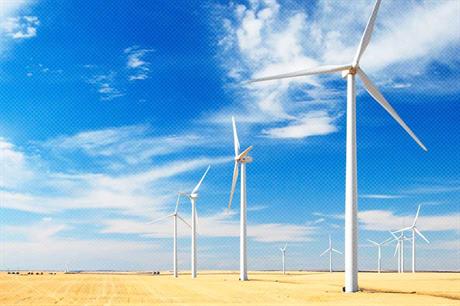al-Hasani
ELITE MEMBER

- Joined
- Feb 1, 2013
- Messages
- 14,060
- Reaction score
- 43
- Country
- Location
Last updated: Monday, April 21, 2014 12:56 AM
RIYADH — Saudi Arabia plans to invest $109 billion to produce 41 gigawatts (GW) of solar energy by 2032, which is almost 30 percent of its total energy requirement by that time. Over the next two decades, the government seeks to establish energy generation projects, which runs on photovoltaic cells (PV cells) with a capacity of 16 GW.
In addition, it will also facilitate projects that will make use of energy concentrate with a capacity of 26 GW.
These initiatives aims to boost the Kingdom’s potential for becoming the largest producer of solar energy in the world, organizers of the Saudi Energy 2014 event said on Sunday.
Against this backdrop, Saudi Energy 2014 —the International Trade Exhibition for Electricity, Power Generation, Alternative Energy, Water Technology and Lighting —will be held in the Kingdom to spotlight the latest products and services for the power sector.
Held under the patronage of the Ministry of Water and Electricity and organized by the Riyadh Exhibitions Company and Informa Exhibitions, Saudi Energy 2014 will take place on May 26-28 at the Riyadh International Convention and Exhibition Centre.
With regional investments in the energy sector at its peak, Saudi Energy 2014 will be a marketplace for specialized and related industries and companies to promote their products and services. It will also be an opportunity for them to explore regional market and penetrate into the lucrative Saudi Arabian market.
The event is one of the most functional exhibitions in the region that covers all segments of the energy sector, including electricity generation and distribution, alternative and renewable energy technologies, modern lighting products and technologies, and water and water resources management technologies.
“The Kingdom of Saudi Arabia is witnessing a major development in the area of alternative energy, with strategic plans being implemented and key projects being undertaken to meet the increasing demand for energy,” said Fahad Al-Athel, Deputy General Manager, Riyadh Exhibitions Company.
“Saudi Energy 2014 will make a definite contribution towards this transformation by offering a gateway for international experts to network with local players to discuss the latest industry trends, explore business prospects and opportunities of mutual cooperation,” he added. “The exhibition promises to be fruitful for both exhibitors and visitors comprising government officials, contractors and consultants, developers and investors, and engineers and technicians, to name a few.”
Saudi Energy 2014 will showcase the latest sector products, services and technologies to a large group of professional visitors from Saudi Arabia and the region. The event will offer a chance to gain first-hand experience in fresh technologies and new equipment and stay abreast with the industry and market developments in the region. – SG
KSA taps the sun to meet a third of its energy needs | Economy | Saudi Gazette
RIYADH — Saudi Arabia plans to invest $109 billion to produce 41 gigawatts (GW) of solar energy by 2032, which is almost 30 percent of its total energy requirement by that time. Over the next two decades, the government seeks to establish energy generation projects, which runs on photovoltaic cells (PV cells) with a capacity of 16 GW.
In addition, it will also facilitate projects that will make use of energy concentrate with a capacity of 26 GW.
These initiatives aims to boost the Kingdom’s potential for becoming the largest producer of solar energy in the world, organizers of the Saudi Energy 2014 event said on Sunday.
Against this backdrop, Saudi Energy 2014 —the International Trade Exhibition for Electricity, Power Generation, Alternative Energy, Water Technology and Lighting —will be held in the Kingdom to spotlight the latest products and services for the power sector.
Held under the patronage of the Ministry of Water and Electricity and organized by the Riyadh Exhibitions Company and Informa Exhibitions, Saudi Energy 2014 will take place on May 26-28 at the Riyadh International Convention and Exhibition Centre.
With regional investments in the energy sector at its peak, Saudi Energy 2014 will be a marketplace for specialized and related industries and companies to promote their products and services. It will also be an opportunity for them to explore regional market and penetrate into the lucrative Saudi Arabian market.
The event is one of the most functional exhibitions in the region that covers all segments of the energy sector, including electricity generation and distribution, alternative and renewable energy technologies, modern lighting products and technologies, and water and water resources management technologies.
“The Kingdom of Saudi Arabia is witnessing a major development in the area of alternative energy, with strategic plans being implemented and key projects being undertaken to meet the increasing demand for energy,” said Fahad Al-Athel, Deputy General Manager, Riyadh Exhibitions Company.
“Saudi Energy 2014 will make a definite contribution towards this transformation by offering a gateway for international experts to network with local players to discuss the latest industry trends, explore business prospects and opportunities of mutual cooperation,” he added. “The exhibition promises to be fruitful for both exhibitors and visitors comprising government officials, contractors and consultants, developers and investors, and engineers and technicians, to name a few.”
Saudi Energy 2014 will showcase the latest sector products, services and technologies to a large group of professional visitors from Saudi Arabia and the region. The event will offer a chance to gain first-hand experience in fresh technologies and new equipment and stay abreast with the industry and market developments in the region. – SG
KSA taps the sun to meet a third of its energy needs | Economy | Saudi Gazette
Last edited:










